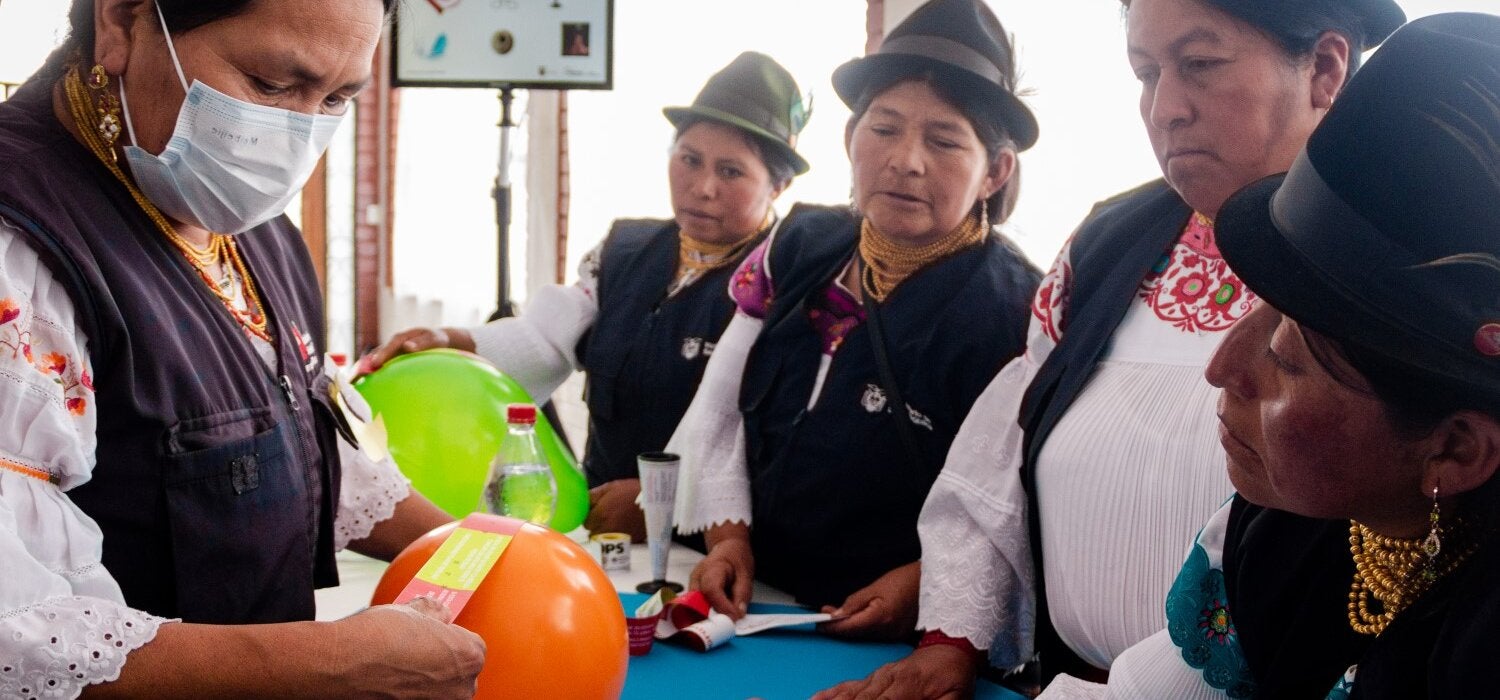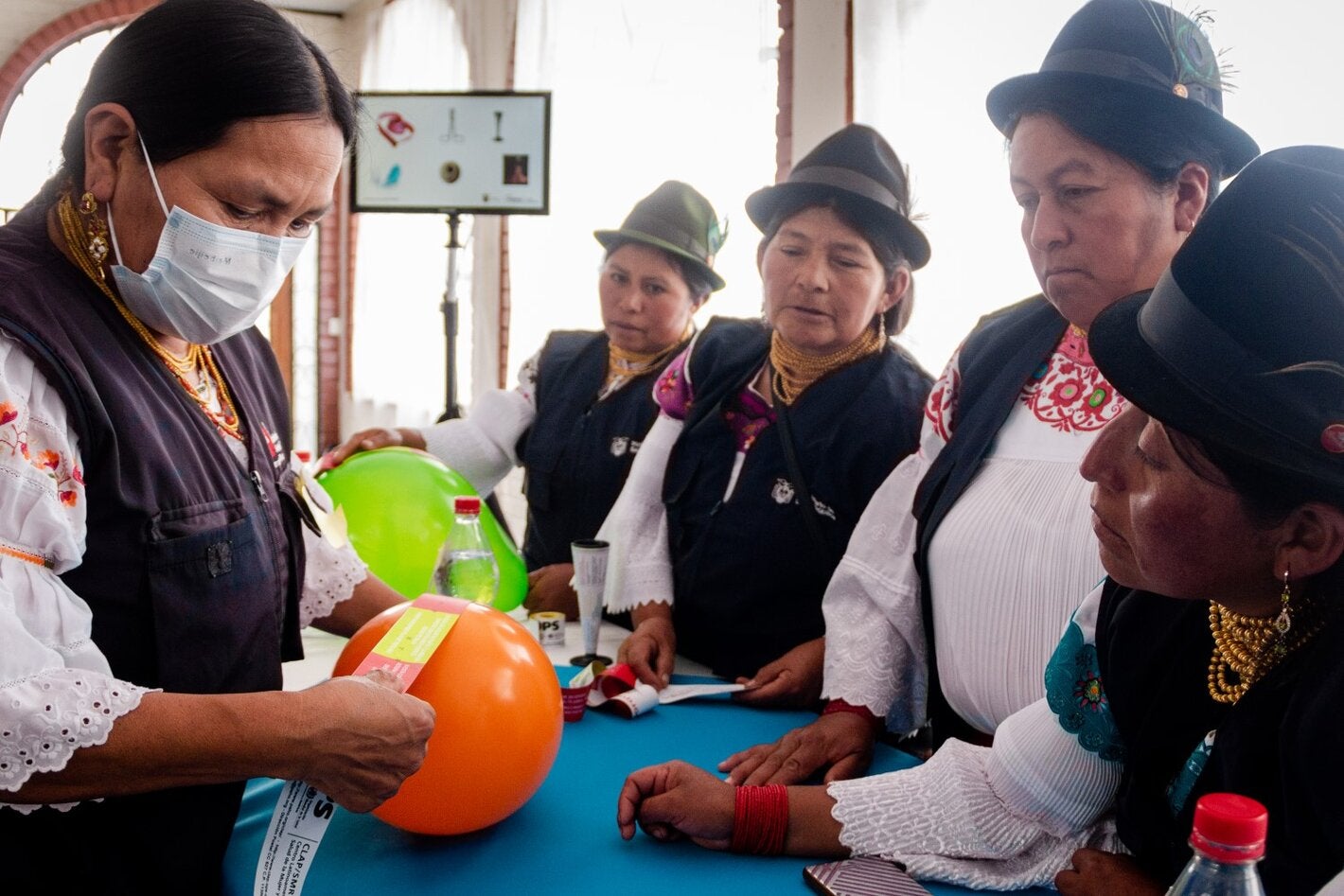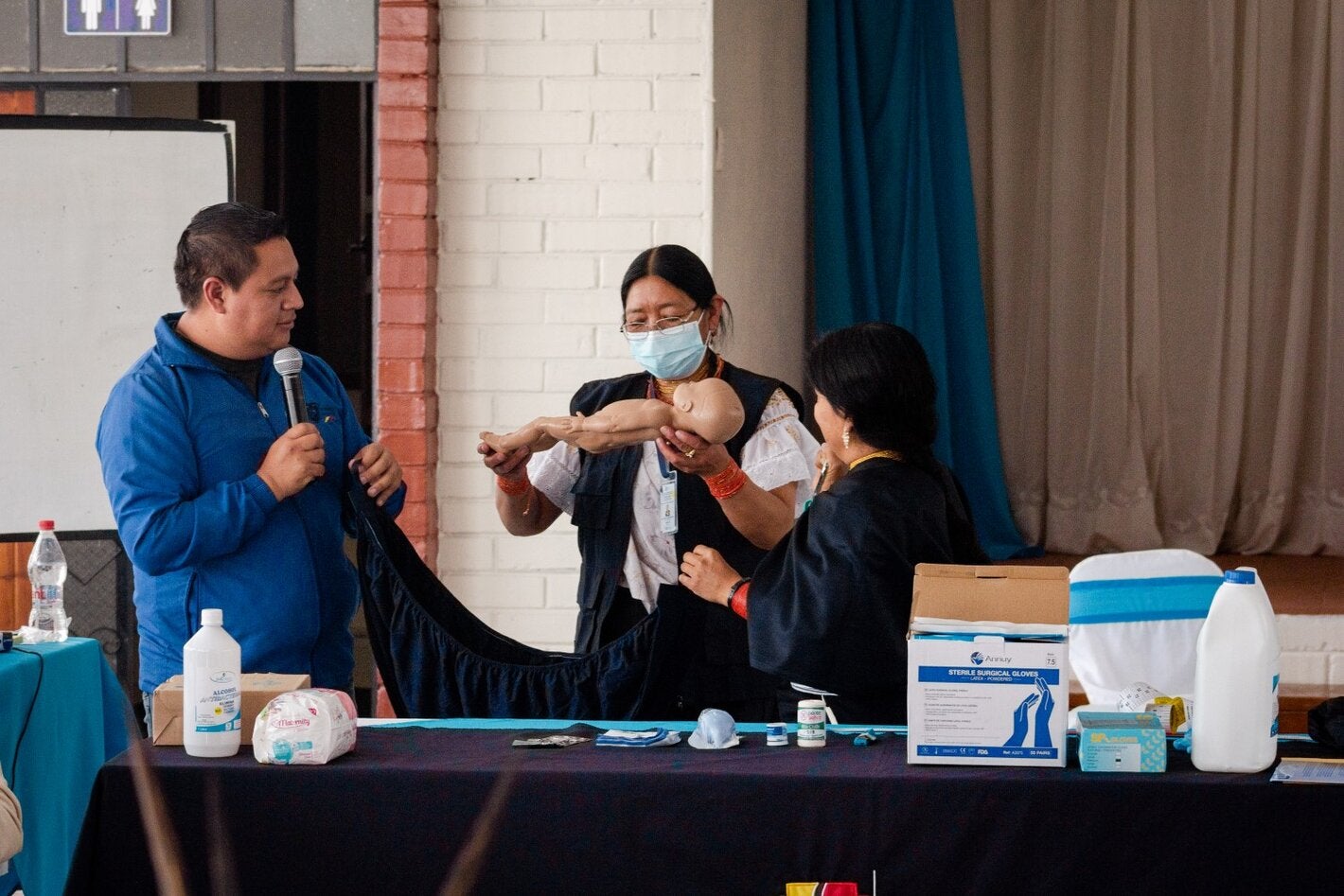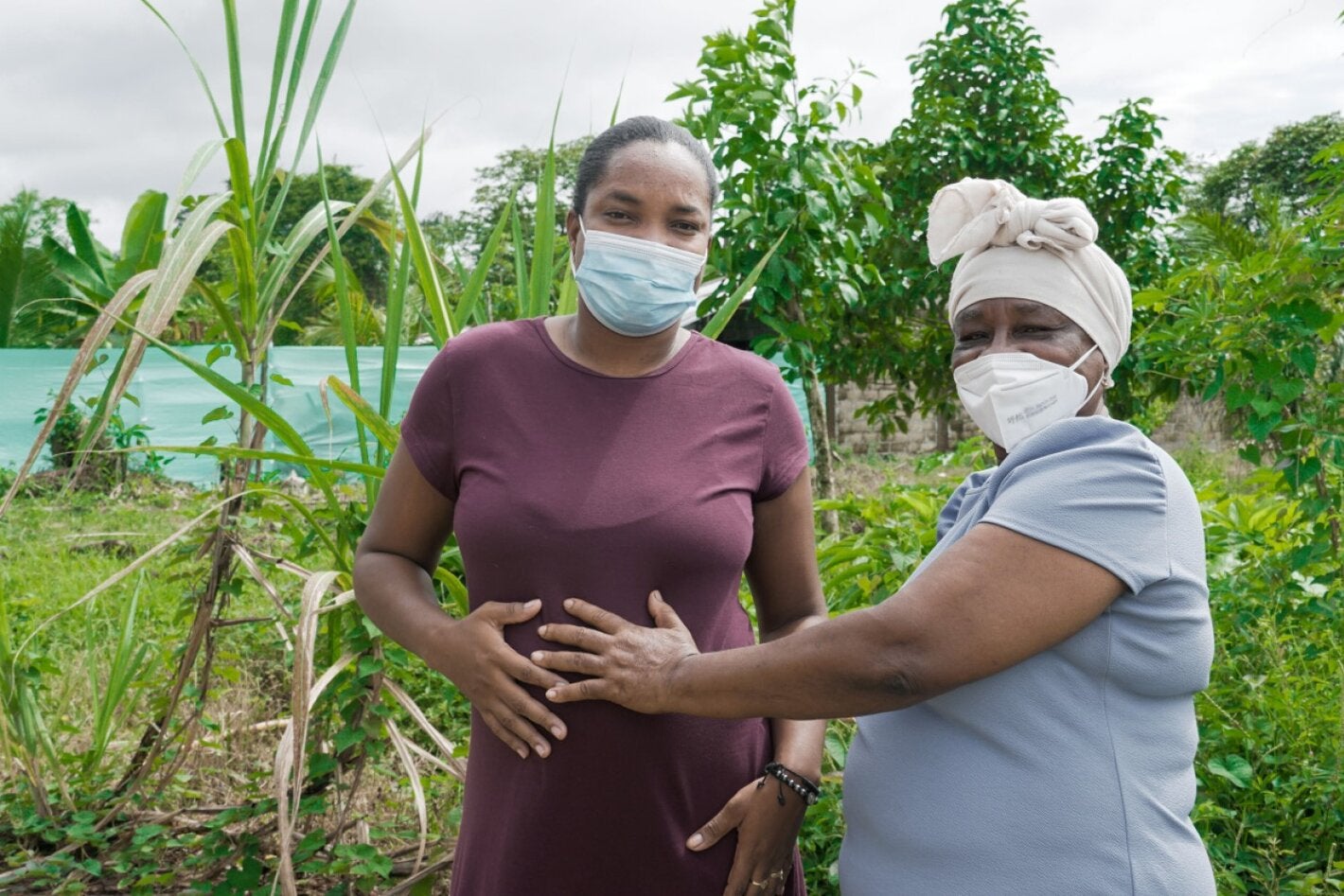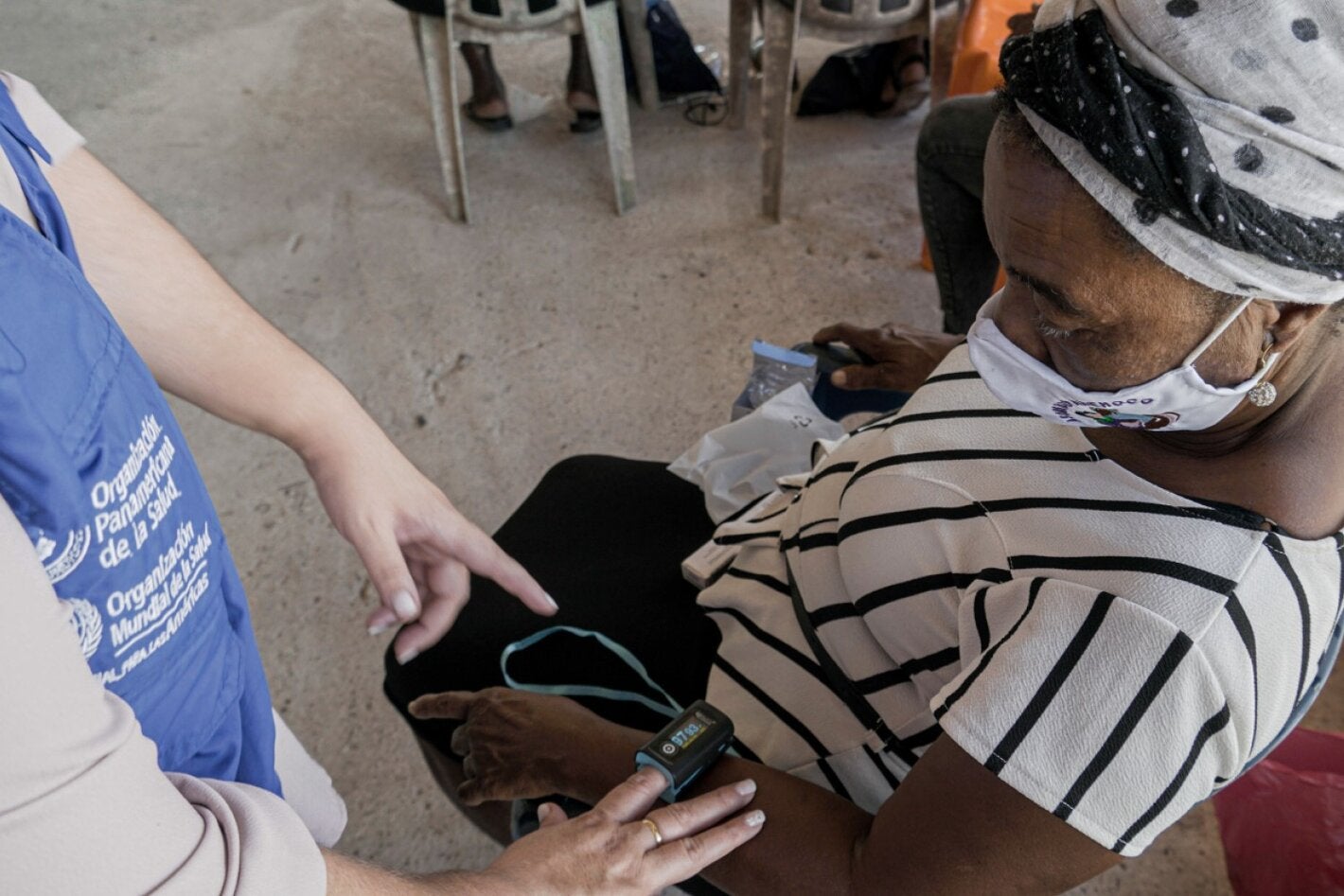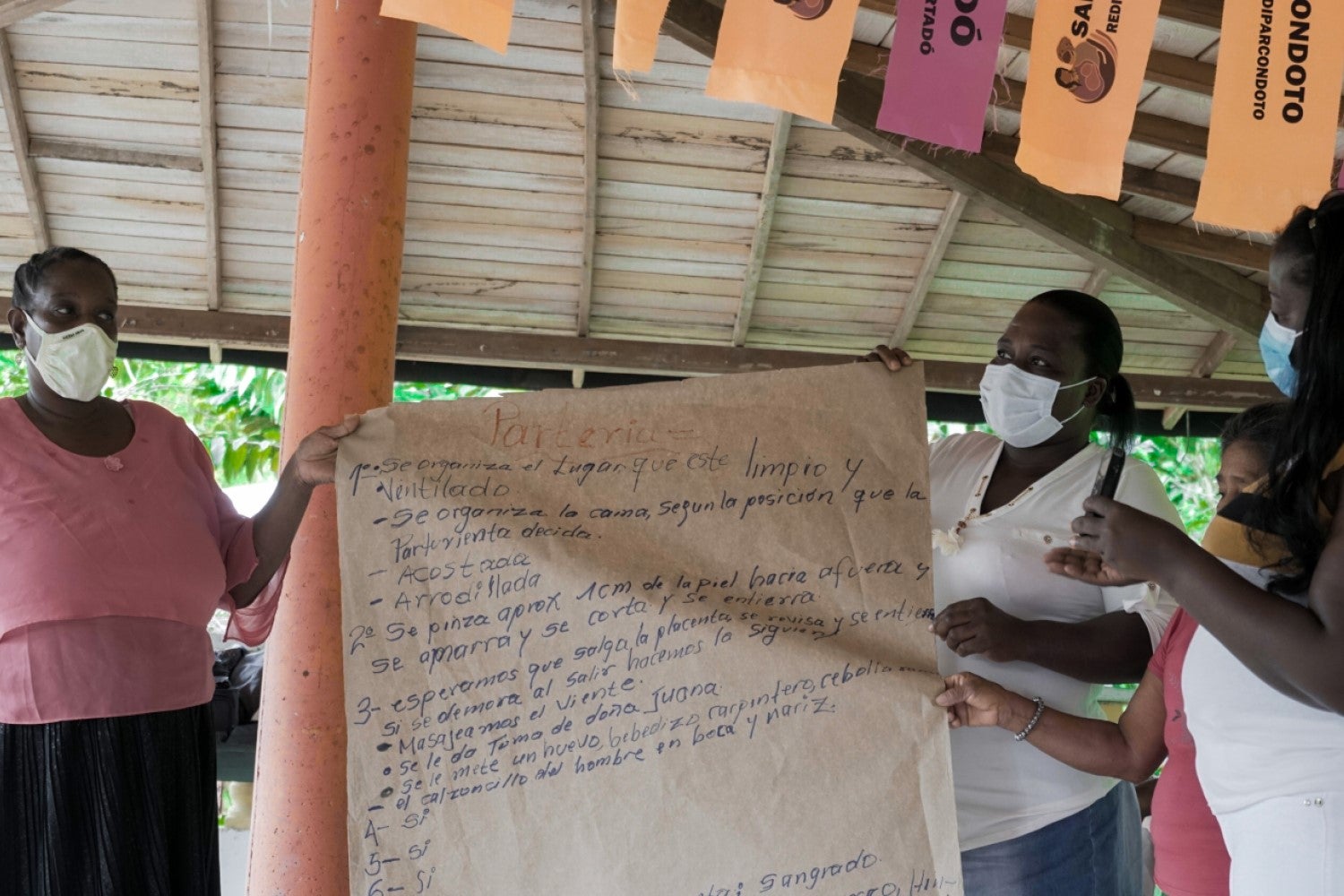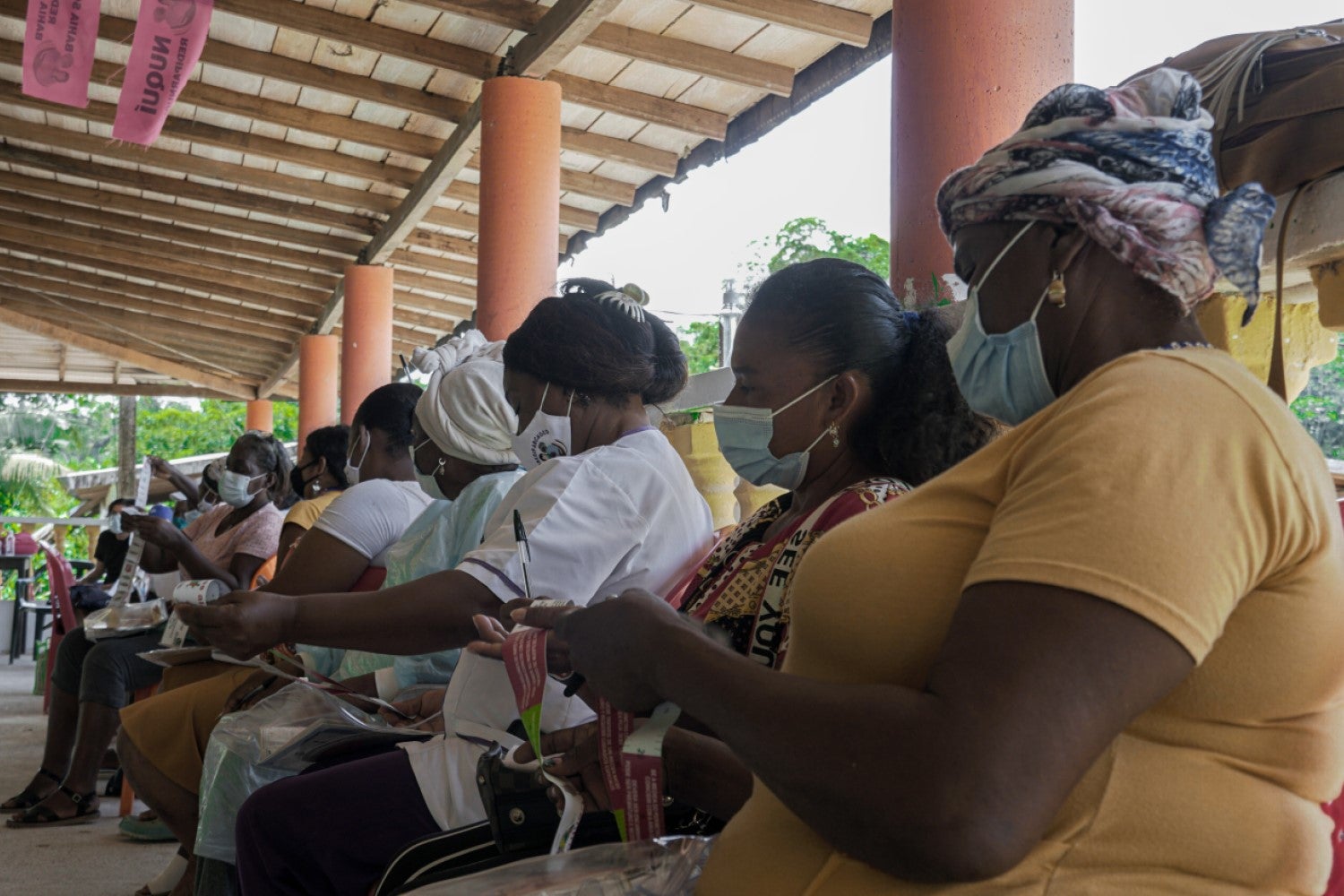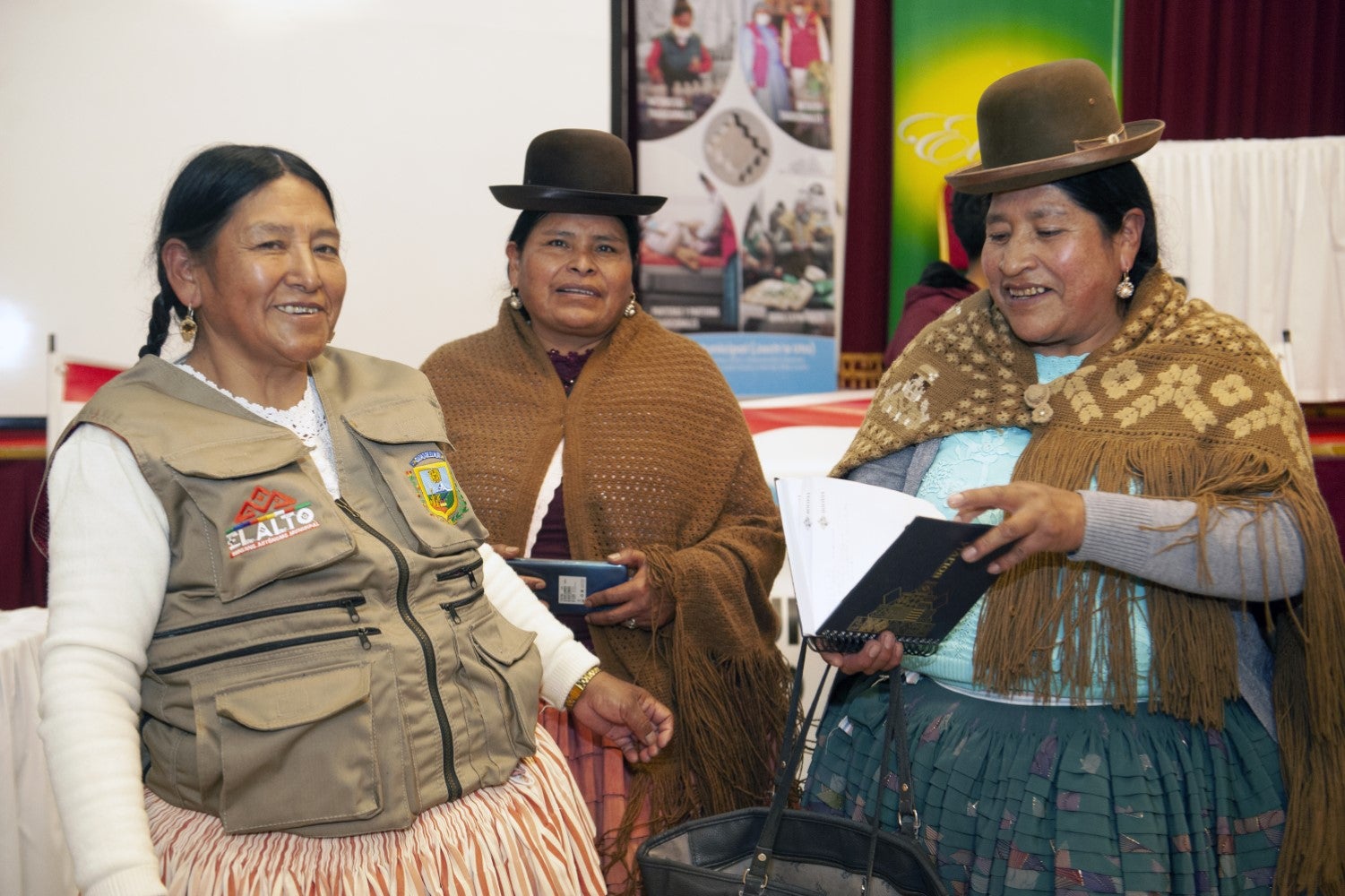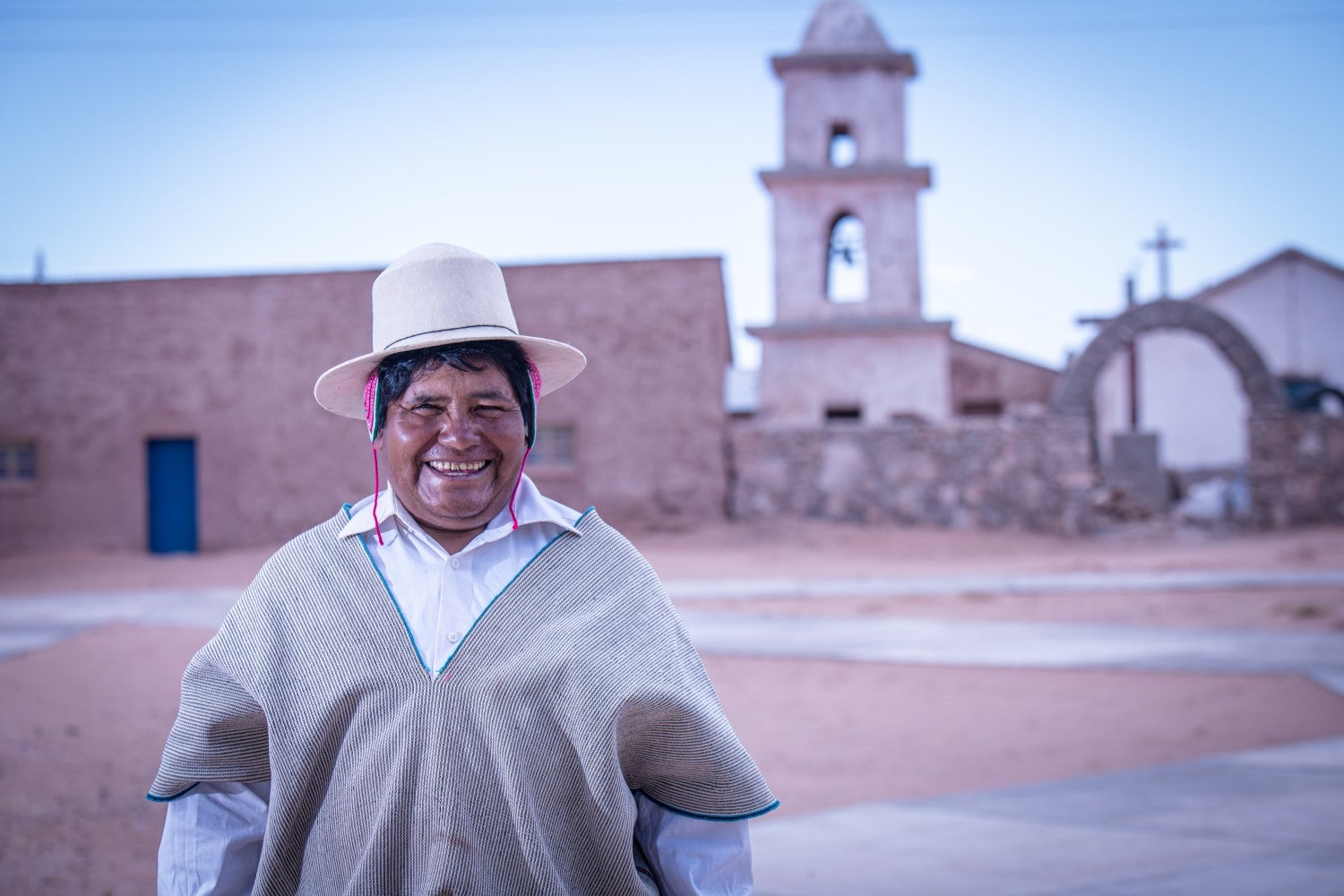In rural and remote communities of Latin America, ancestral practices such as midwifery have been passed down from generation to generation. In these areas, where geographical barriers and cultural differences can hinder access to healthcare centers, the practical and spiritual support of traditional midwives can make the difference between life and death.
June 2023
The Pan American Health Organization (PAHO), with the support of the Government of Canada, has been working with over a thousand traditional midwives since 2021 to provide them with knowledge of warning signs to help prevent maternal and neonatal deaths. PAHO also helps bridge the cultural gap between traditional midwives and healthcare services to facilitate the respectful treatment of women.
Mercedes Panamantamba, a traditional midwife in the city of Otavalo, in northern Ecuador, learned about midwifery from her grandmother and has been practicing her profession for over 40 years. Every day, she walks long distances to attend pregnant women in rural areas that are difficult to access. Nevertheless, she considers it is important for expectant mothers to go to healthcare centers to give birth.
For her, ancestral knowledge, such as the use of medicinal plants, is as important as knowledge of western medicine that helps her detect pregnancy risks in a timely manner. Receiving this training has allowed her to anticipate problems and resolve complications that can endanger the life of the mother or the baby.
"Before, when they had abdominal pain, we thought it was just 'bad air'. We didn't investigate further, and the pregnant woman's condition worsened. With the knowledge we acquired, we can now identify gallbladder problems or even appendicitis. Diseases that, if they are not immediately treated, can be fatal," explains Panamantamba.
In addition to strengthening their skills, she believes that the exchange of knowledge and experiences between traditional birth attendants and healthcare personnel is key to achieve greater coordination and expand the implementation of safe and culturally sensitive interventions that contribute to reducing maternal deaths.
PAHO helps bridge these gaps through training sessions and knowledge dialogues on topics such as family planning, prenatal care, identification of warning signs, and childbirth care. Since 2021, midwives from Bolivia, Colombia, Ecuador, Honduras, and Peru have participated in these sessions.
These activities are part of "Improved Health of Women and Adolescent Girls in Situations of Vulnerability," a joint project between PAHO and Global Affairs Canada that arises from a concern for the health of women and adolescents in the region.
After decades of progress, maternal mortality increased by 15% in Latin America and the Caribbean between 2016 and 2020. Nearly 8,400 women die each year in the region due to complications during pregnancy, childbirth, and the postpartum period, according to the United Nations Maternal Mortality Estimation Inter-Agency Group.
Technology and Ancient Practices Go Hand in Hand
Responding to maternal warning signs in hard-to-reach areas is possible through the use of tools such as the Pinard stethoscope, an instrument used to listen to fetal heart sounds, a measuring tape to assess uterine height during pregnancy, and vital sign monitors known as "cradles," designed for community healthcare workers and calibrated with a mechanism that helps identify potential pregnancy emergencies, such as preeclampsia (a hypertensive disorder that can occur during pregnancy and postpartum).
"Detecting warning signs in a timely manner often allows us to prevent maternal mortality," explains Bremen De Mucio, Regional Advisor on Maternal Health at PAHO, underscoring the fundamental role of traditional birth attendants and volunteers who learn to use these devices.
In Colombia, Lady Manuela Mosquera, a traditional midwife, asserts that adapting the use of tools to different contexts and finding common ground between western and ancestral medicine is possible when knowledge transfer takes place in spaces of trust where the autonomy of traditional knowledge is respected.
"Midwives identify warning signs through all sounds emitted by the woman's body. But the technology of the Pinard stethoscope and the measuring tape facilitate the identification of warning signs at the right time, and that's where both types of medicine come together," says Mosquera, one of the leaders of the Interethnic Association of Midwives in the Department of Chocó.
Embracing Cultural Diversity to Save Lives
The meetings between PAHO and traditional birth attendants have fostered the creation of agreements between ancestral leaders and healthcare services, improving interventions in rural, indigenous, and Afro-descendant communities.
"Knowledge dialogues are a key part of developing participatory community plans, where actions are prioritized based on the needs identified by the communities and are not 'imposed' by the health sector," De Mucio said.
"These knowledge dialogues not only help us learn more about the context, but they are also a channel for raising awareness. By organizing these meetings, we reach agreements that can help address challenges in women's health," added Sandra del Pino, Advisor on Cultural Diversity at PAHO.
For example, in Otavalo, Ecuador, traditional birth attendants have been allowed to accompany pregnant women into delivery rooms, a strategy that promotes closer relationships with healthcare centers in areas where indigenous traditional medicine is widely trusted.
In Bolivia, Ana Choque, Head of Midwives at the Municipal Autonomous Government of El Alto, defends the right of all women to have a dignified and humane maternity experience. For her, the ancestral contribution to improving women's healthcare lies in listening, respecting reproductive autonomy, and empathizing with pregnant women. Recognizing these values is crucial for coordination among doctors, academics, and hospitals and to jointly understand how to support the health of indigenous women.
The relationships cultivated within and outside the technical spaces convened by PAHO have contributed to strengthening trust, allowing the process of achieving consensus to be more fruitful.
"Sitting down for an information chat with a traditional birth attendant to discuss personal experiences and stories also helps us understand everyday cases and improve interventions," points out Catherine Rodríguez, National Consultant on Maternal and Neonatal Health at PAHO in Colombia.
The meetings organized by PAHO and supported by the Government of Canada have yielded results that can benefit the entire region, such as the development of the Tool for Promoting Culturally Safe Childbirth. Promoting these spaces and recognizing the knowledge of traditional communities are PAHO strategies that contribute to improving women's health and advancing towards universal health coverage.

